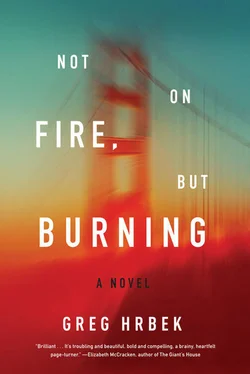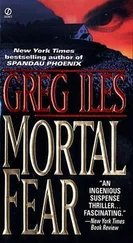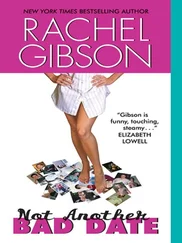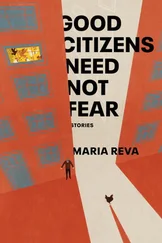We live, day to day, with the chance of something violent, something tragic happening at any moment. Yet wondering when suggests the possibility (however faint) of if , allowing for the hope that the thing you fear may not happen after all. But when you know when, you can’t hope against the coming. All you can do is wait … And that is what Karim Hassad had been doing ever since that day at the mosque, when his old friend had told him: Within the week. Some time in the next seven days. I don’t know what, I just know soon. Now, listen. Give me your number. After which the two had parted company. Karim was brought home by Mrs. Mahfouz, and he found Jaddi at the kitchen table, cleaning his gun: inserting a small brush into one of the parts.
“How was masjid?” the old guy asked.
“Good.”
He nodded, but didn’t look up until Karim said he’d met someone there. “A boy like me, from a camp.” And that was when Karim started lying. Saying first that the boy had been interned in the Wyoming Territory; and second, that the boy and his parents were now living with extended family in a town twenty minutes away. “He invited me over tomorrow,” Karim said. “Can I go?” The reaction on the old guy’s face was not one Karim had seen so far. An expression that reminded Karim of the way the nuns had looked at him back in Dakota when he would nod in the affirmative after being asked: Are you staying away from Dream? But then the tension, like a thin layer of ice quickly melting, was gone, and the old guy said, “Sure, bud.”
The next day, Karim was with Yassim in the backseat of a car being driven by a man who had introduced himself to Jaddi as Yassim’s uncle, Faraj. The man (maybe his real name was Faraj, maybe it wasn’t) had been polite and amiable at the house; in the car, he shook off that personality, and adjusting the rearview mirror so he could see Karim and Karim could see him, explained in Arabic that there was not much time now. “If you had made contact three weeks ago, when you were told to. But because you failed in that simple task, we must move you quickly toward your goal, which will now be a shared one. A new era is about to begin. Within the week, the first lines of a new chapter are going to be written. We will give you a role in this heroic epic, and the action you perform will be added to the like actions of a thousand other shahids, each one of you like unto a wave which when joined together will form an ocean, and all of you will live as heroes in Paradise. But we will not tolerate any further problems from you. Am I understood so far?” Karim nodded, and Yassim said, “You’ll have no problems from us, Uncle. You just tell us where to go and we’ll be there.” The drive ended in a rural area, on what seemed to be an abandoned farm. Yassim got out, Karim got out. The first thing Karim noticed was the barking of a dog. As usual, the buzzing of the insects was all around him. But he had become, in a sense, deaf to that noise, so all he seemed to hear was the dog, which judging by the hoarseness of its voice, had been barking for a long time without cease. “I already did this,” Yassim said. “Did what?” Karim said. The man, motioning to the boys, walked toward a building painted the color of dry blood. Inside there, Karim realized after a few steps, was where the dog was. And as he perceived also that the building (the word came to him: barn ) was falling apart — walls buckling, roof crumbling — Karim was blindsided by the thought of his mother telling him about a time, the summer before they were interned (he was three), when they had been at the beach, making a sandcastle, and a wave came and it fell apart, “and you started crying, habibi, and scolding the ocean.” Door opening. Sunlit inside because of a hole in the roof; and leashed to a post, the dog. Whose barking, at the sight of them, changed from a distress signal beyond hope to a wild expression of thanksgiving directed at the beings who had finally responded. When he saw the gun in the man’s hand, Karim thought: Where did that come from? The man walked up to the dog, pushed the gun into the short coat shrink-wrapped around the ribcage, and then shot. The animal yelped and leaped sideways: the leash stopped it short, and so it sat humbled in the dust. Blood dripped from fur matted with blood. It opened its mouth and hacked. The man said: “Now, take this—” (a different weapon in hand, a knife with a long curved blade) “—and cut the throat.” In the three days since cutting that throat, Karim has come to see that it is true: He had not so much killed a living thing as ended the suffering of a pointless life. For what kind of life is it to be chained up, alone and starving. And how are we — me and Yassim (and don’t forget Hazem) — any different from such a dog? They fenced us in and made us orphans and the hunger we feel can never go away. Not in this world. So what will it be to take up a knife and cut our own throats? And amid or laid over (or perhaps running simultaneously with) this voice-as-feeling was the image-made-from-story of a beach and a wave and a castle made of sand, and his mother; and all of this thought-as-seen when suddenly — from his phone and scaring the shit out of him — came the tone. Which he had known was coming. But foreknowledge of the coming was no protection. To the contrary, foreknowledge only pushed his fear into a dimension without boundaries.
In B 39— R 61, Karim Hassad has cut the throat of a dog. This action is repeated on many other pathways, though the cutting of the dog’s throat is by no means a constant, any more than is the issuing of a terrorism advisory alert three days later. On many pathways, random chance has precluded the cutting of a dog’s throat — for example, through antecedent events that lead Karim to a point other than the barn on the afternoon of 07.06.2038 and from that point to other points, none of which ever coincide in spacetime with the barn (not to mention the fact that on certain pathways the dog was never captured and imprisoned in the barn, and on one notoriously malfunctional path, which has been under review for some time by the appropriate RS subcommittees, the barn was never built in the first place). While on many other pathways, free will as exercised by Karim has deselected the option of the cutting of the dog’s throat, a choice that will lead, on some pathways (though by no means all), to future events and fates radically different from those in B 39— R 61.
But.
The possibilities are infinite; and we could easily lose our way at this point (and could have long before now) by considering endless variations: which is to say, we could incapacitate ourselves with thoughts of what we might have done, what might or might not have been and what might be, if only we had done this or not done that. Such differences can concern us only insofar as they inform (and potentially impact) events on B 39— R 61: a path on which Karim Hassad does cut the throat of a dog and on which a terror alert is issued on 07.09.2038; where Dorian Wakefield is riding his bike through a rain he fears is poisoned, where Kathryn Wakefield is mired in a vehicular exodus from a city specifically targeted, and where the possibility of Skyler Wakefield once existed but where Skyler Wakefield herself does not exist.
All that concerns us now — and it is arguably the only thing that ever concerns any of us — is what happens next on the path.
Is a dirty bomb (hidden, let’s say, in the falafel truck that parks every day alongside the very plaza that Kathryn Wakefield was gazing down at a few short minutes ago from an upper story) about to be detonated? Or is a blistering rash even now appearing on the skin of Dorian Wakefield? Are we fated to lose forever the ones we love? Or will the long-lost, in the end, be miraculously returned to us?
Читать дальше












